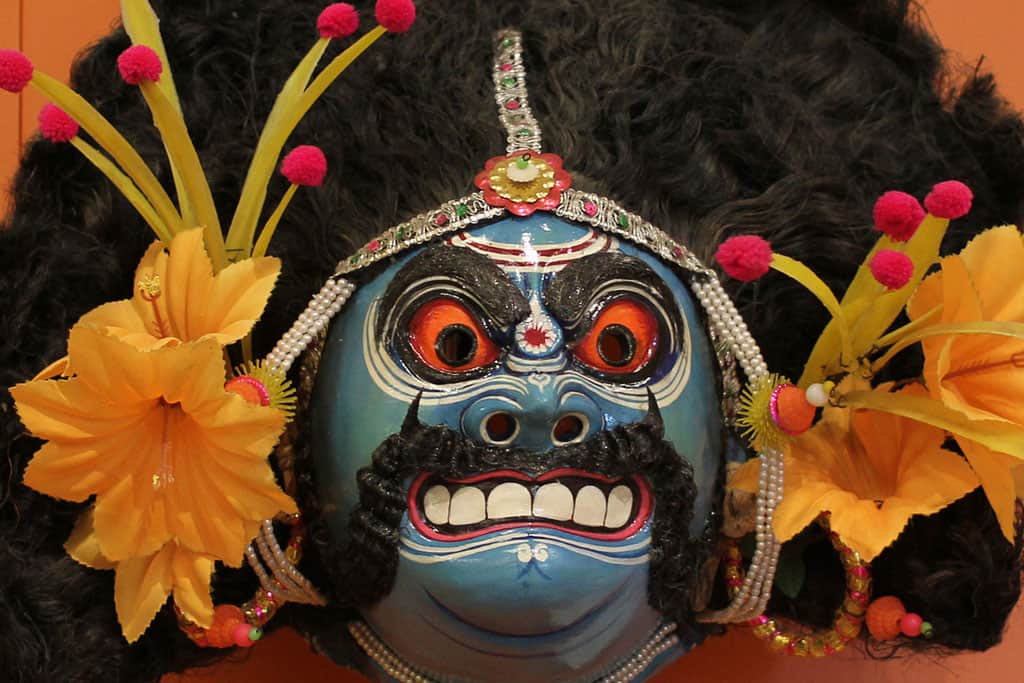In General
All these are, in a way, the fallen divinities (fallen Aryas) who went out of the Indian subcontinent to lands like China, Iran, Europe, Australia, Africa, America and Lanka and settled there, establishing their culture.
The Fall from Nobility
Though the Vedic culture remained with them for some time, it rubbed off gradually by the increasing acquisition of negative qualities (Tamasik attributes) and became the victim of many belief systems antagonistic to the Vedic ones. A description in terms of their manifested traits is as follows:
Fates of People with the Three Attributes
It is well spelt out in Manusmriti about the fates of people influenced by attributes of harmony and positivity (Satogun), attributes of action and passion (Rajogun) and attributes of darkness and negativity (Tamogun).
“dhevathvam sāthvikā yānthi manushyathvancha rājasāha.
thiryakthvam thāmasā nithyamithyeshā thrividħā gathihi”.
“chāranāshcha suparnashcha purushāshchaiva dhāmmikāha.
rakshānsi cha pishāchāshcha thāmasīshoothmā gathihi”.
“gandħarvā guh’yakā yakshā vibhudħānucharāshcha ye. thatħaivāpsarasaha sarvā rājasīshoot’thamā gathihi”.
Manusmriti 12/40, 44, 47
One who is pious and harmonious (sāttvik) attains the form of the divine (Dev) or righteous scholar, one who is given to action and passion (Rajasvik) attains the intermediate human state. One who is invested with darkness and negativity (Tamasik) attains a lower fate. (40).
Those who are good Tamogunis will become poets who compile poems to praise others, beautiful birds, people of vanity, violent demons, and unrighteous, vicious ones get born in the class of evil spirits/fiends. (44).
Those who are good Rajogunis take birth as good singers, players of musical instruments, wealthy, assistants of scholars, or as beautiful women etc. (47).
Know All in Reality
Asur:
“na surāha asurāha” meaning, those who are opposite of the traits of divinities; like selflessness, not keep animosity, being generous or benevolent, capable of sacrifices, undertaking penances, being non-violent, capacity for tolerance; and are given to care and nurture of their own body and life, only are bothered about selfish needs, happiness and comforts and, remain interested in matters of self-interest; to fulfil these they keep inventing and manipulating many fraudulent means; such are called Asurs (Wicked).
Rākshas:
“rakshaha rakshithavyamasmādh, rahasi kshanothīthi.
Vā, rāthro nakshathe ithi vā”
Meaning,those from whom wealth and property, life etc., need to be protected; those who inflict harm taking advantage of lonely situations, and who indulges in dacoity, burglary, theft, prostitution, adultery and such misdeeds at night; such are called Rākshas (Demons). Therefore, those who cause harm to others for their selfish interests trouble others and cause pain, tyrannical and oppressive, unjust, rapist, and given to consuming meat and intoxicants by nature are Rākshas (Demons).
Pishāch:
“peshitham vā māsam rudħirādhikam āchamanthi bhakshayanthi the paishāchāha”.
Meaning, those who savour raw meat and blood of animals, are violent, depraved, immoral, dirty or of filthy mental makeup, loaded with base attributes (Tamoguni), and with cheap and despicable character are called ‘Pishāch’ (Evil or Fiend).
Dhaithy:
Those who consider their own bodily comfort and welfare as the topmost consideration in the grip of base attributes (Tamogun) and in that process never bother about righteousness or unrighteousness are to be known as Dheithy (Monster). They consider the consumption of meat and intoxicants as of utmost importance for the nourishment of the body. They never ever dream about self-awareness or self-awakening.
Dhānav:
People with cruel nature are called Dhānav. Such people think only about self-interest and admonish or rebuke others.





